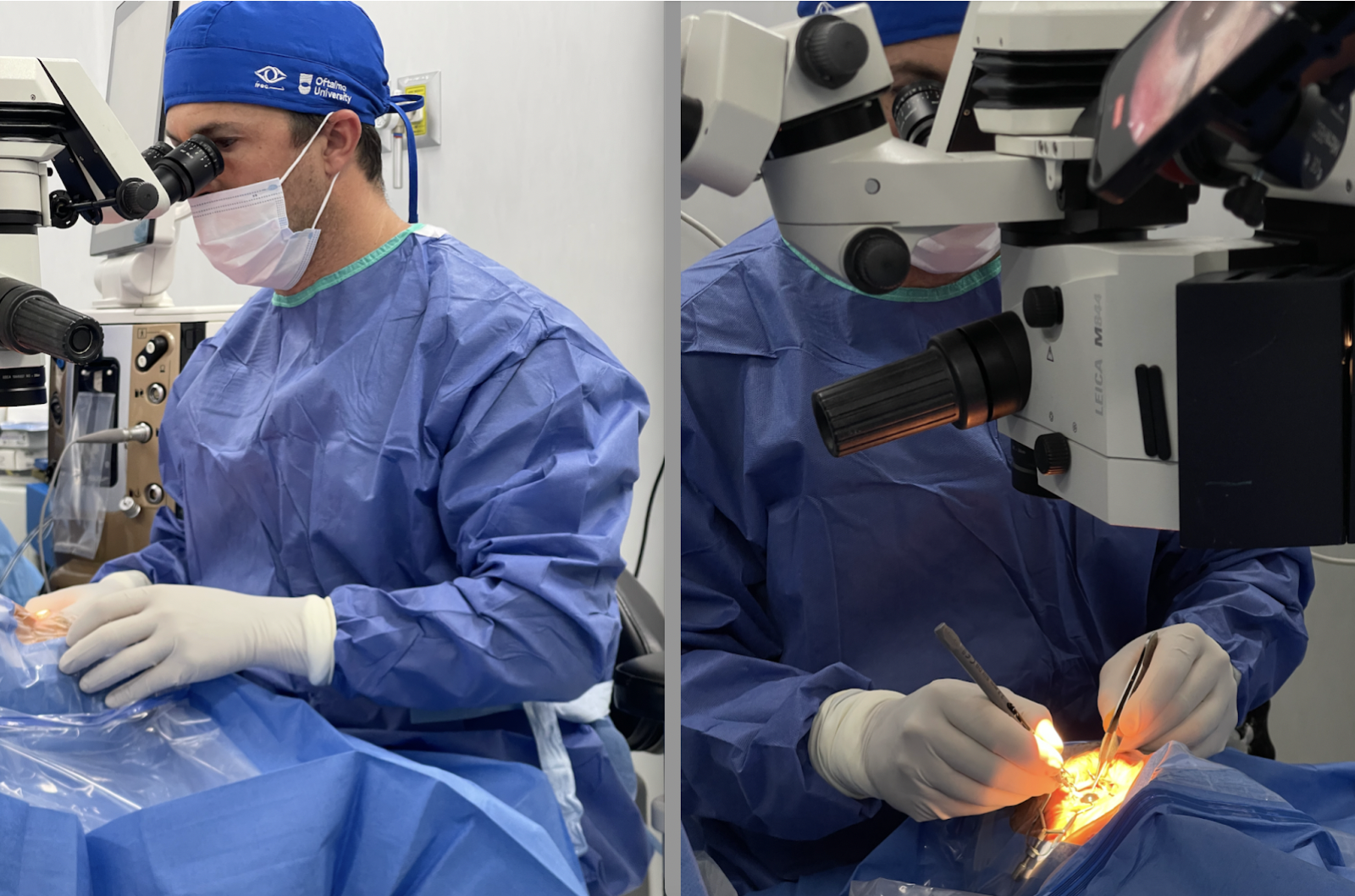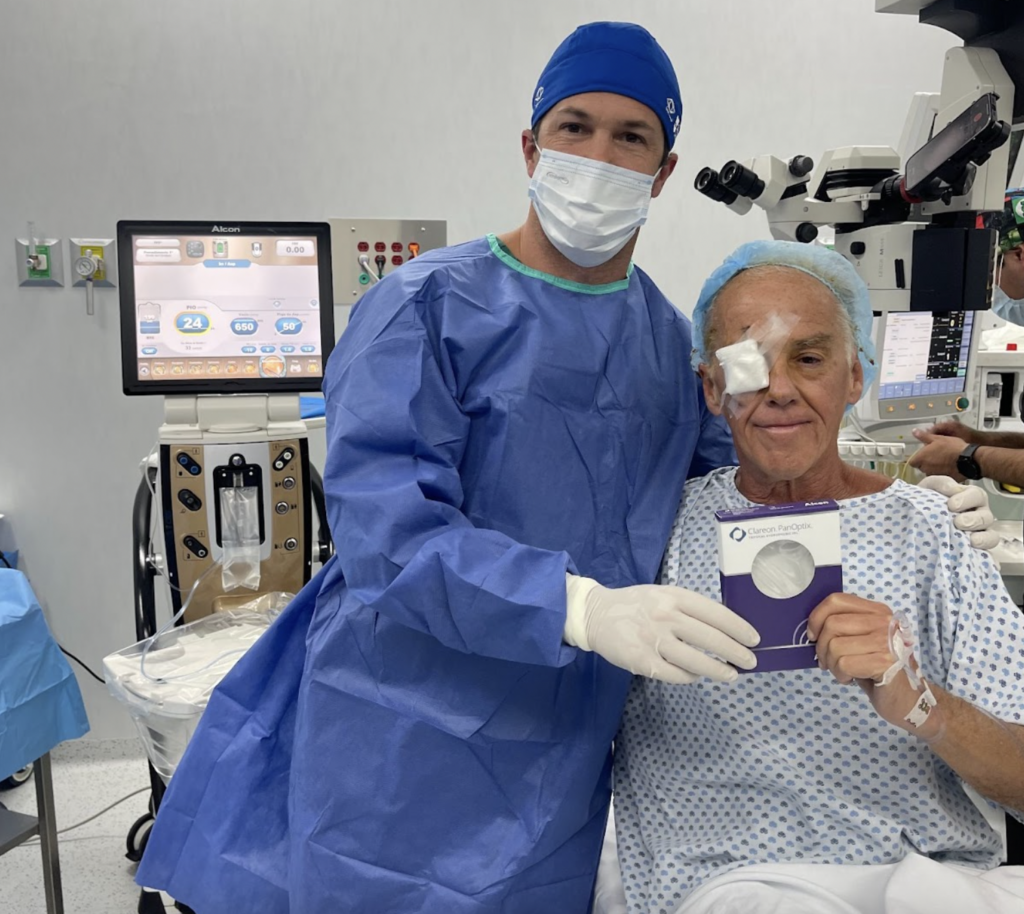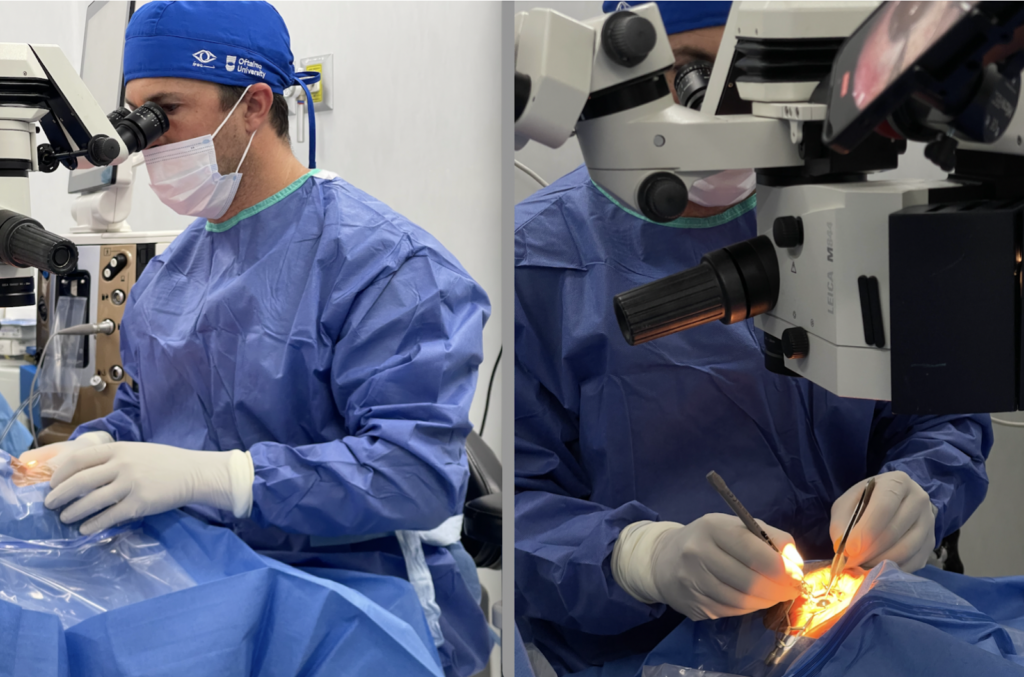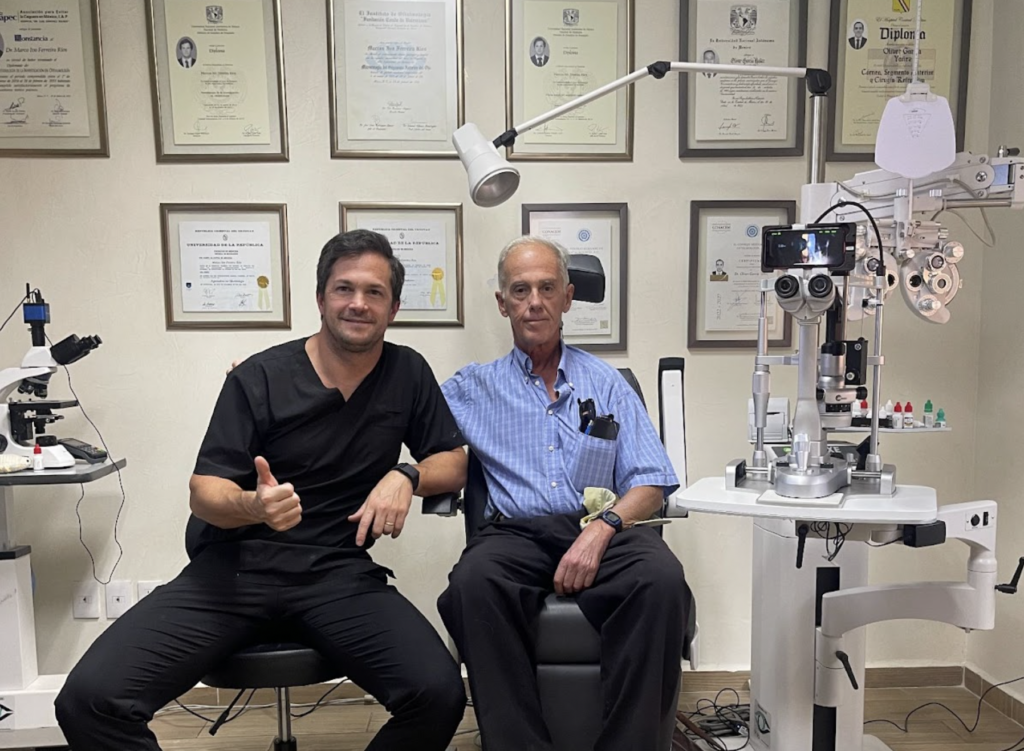Behind the Mask: A Surgeon’s Dilemma with Family as Patients
- Posted by Ivo Ferreira, MD
- Categories Blog
- Date May 6, 2024
- Comments 0 comment

The day arrived after more than two decades of training in medicine, surgery, and ophthalmic microsurgery, when I was tasked with performing cataract surgery on my own father—the man who gave me life and inspired me to pursue a career in medicine. He supported my long and rigorous educational journey, emphasizing the importance of thorough training.

Now, it was not only about performing the surgery but also about implanting the most advanced technology available on the market: trifocal intraocular lenses. These lenses allow for clear vision at all distances—near, intermediate, and far—enabling him to continue performing his duties as an anesthesiologist impeccably.

Is it a responsibility? Absolutely, and a significant one. But don’t we owe the same level of care to all our patients? So what changes when the patient is a close family member, especially one as pivotal as a father who shares your profession?
The real challenge here lies in the mental component of the surgery, an aspect we are seldom trained for. Performing surgery on a parent requires unparalleled mental skills, such as focus, discipline, the ability to achieve a state of flow, and above all, exceptional emotional management. These skills are crucial to treat a close family member with the same objectivity and precision as any other patient.

Would you perform cataract surgery on your parents? Opinions among colleagues vary: some say yes, others no, and a few remain undecided. In some countries, it’s prohibited; in others, it’s frowned upon.
The prevailing belief in surgery is that “Standard care deviation is a step away from optimal treatment.” I believe this holds true. Emotional ties should not hinder one’s ability to operate on a family member. Although cataract surgery doesn’t pose a life-threatening risk, the refractive outcome—which is crucial—requires excellent decision-making skills.

There are no VIP patients, and deviation from the standard is suboptimal. We must train to treat all patients equally, which will invariably lead to better outcomes.
Additionally, we offer a comprehensive course on training the mental skills essential for surgeons, which we believe is a critical component of becoming an excellent surgeon.
Take Your Mental Skills to the Next Level
You may also like

The importance of Spatial Thinking in Surgery Training
Hello Phaco world!
Welcome to PhacoMentors! Great things are coming to the amazing Phaco world. Keep tunned!


